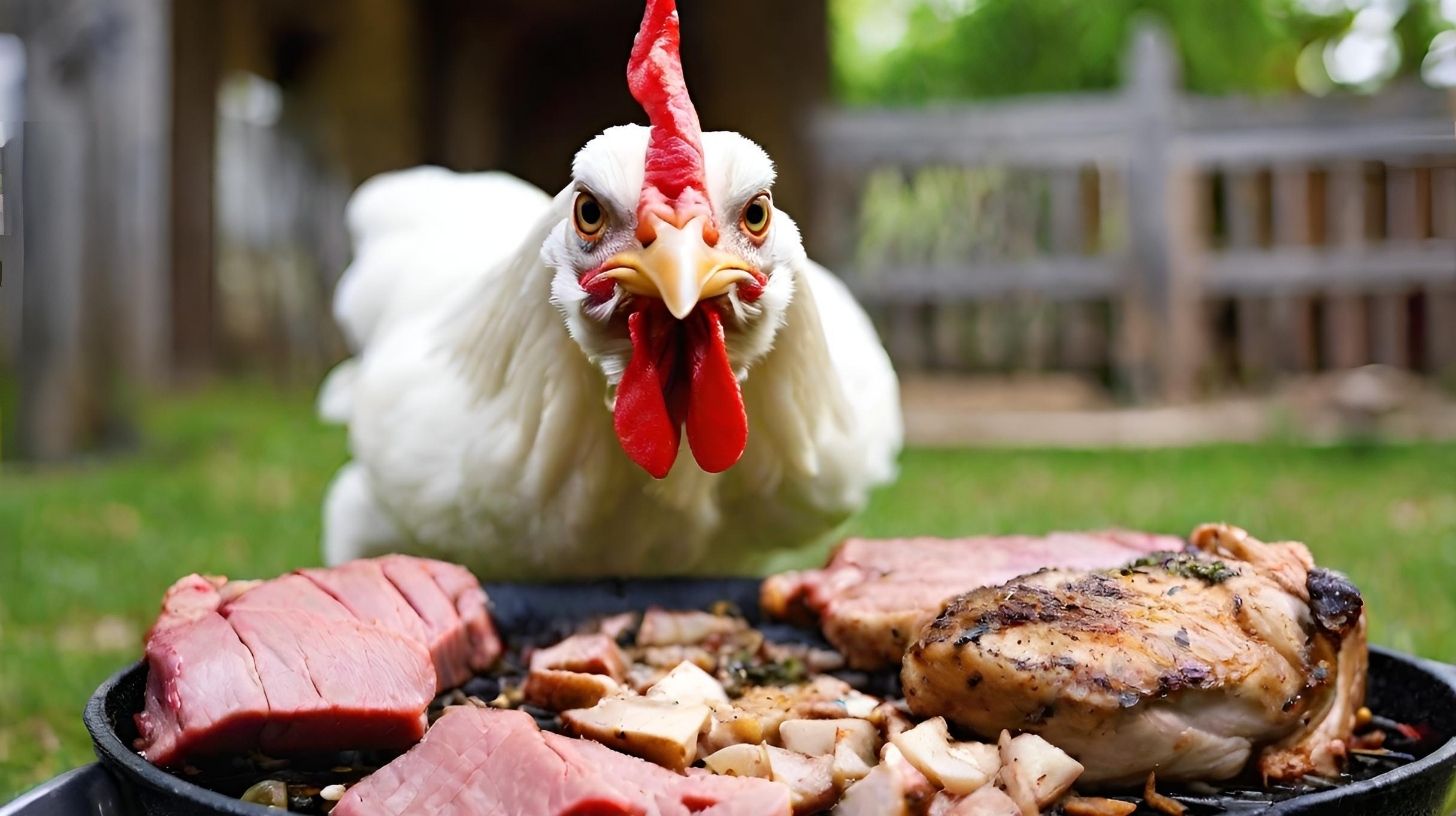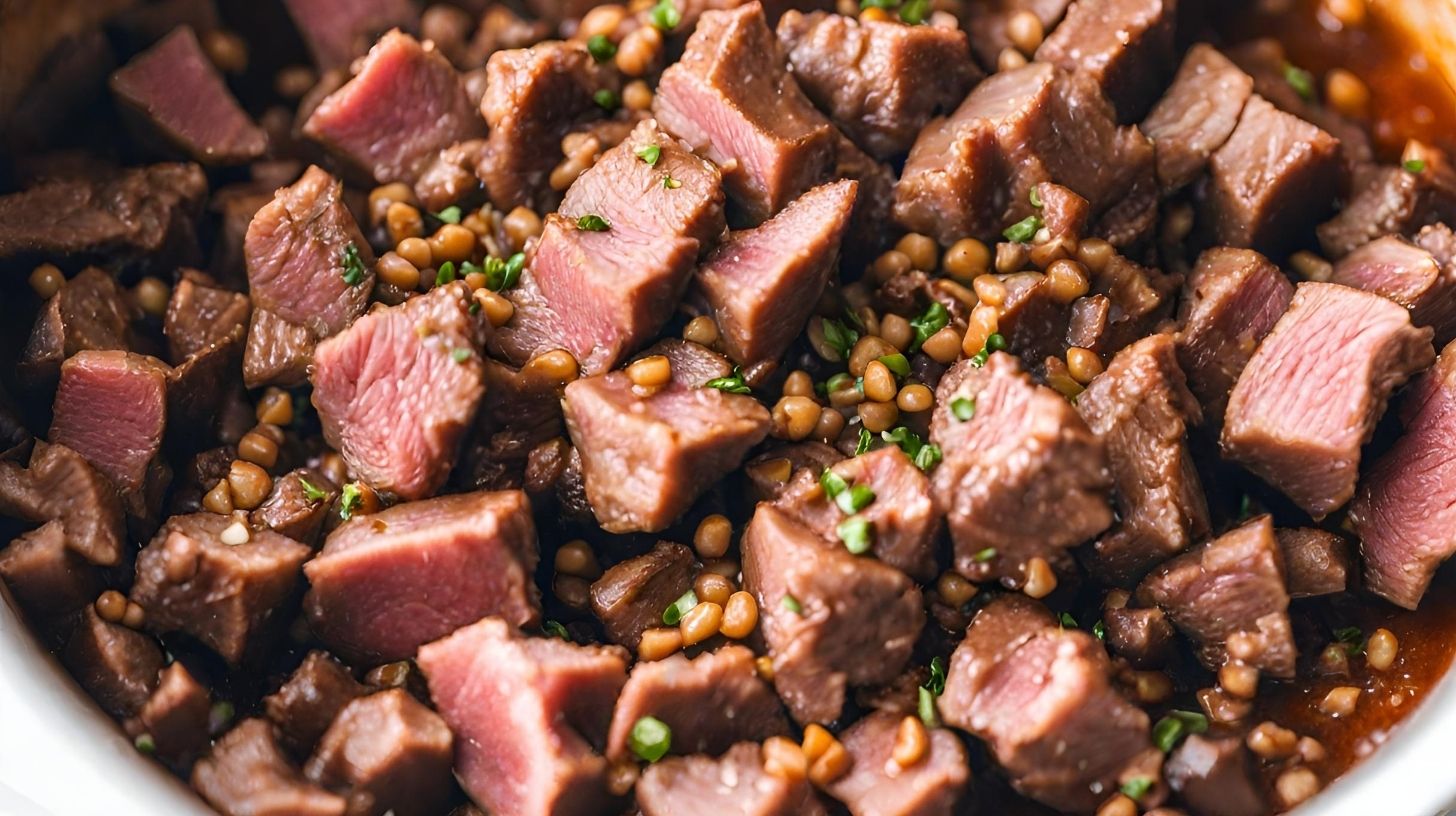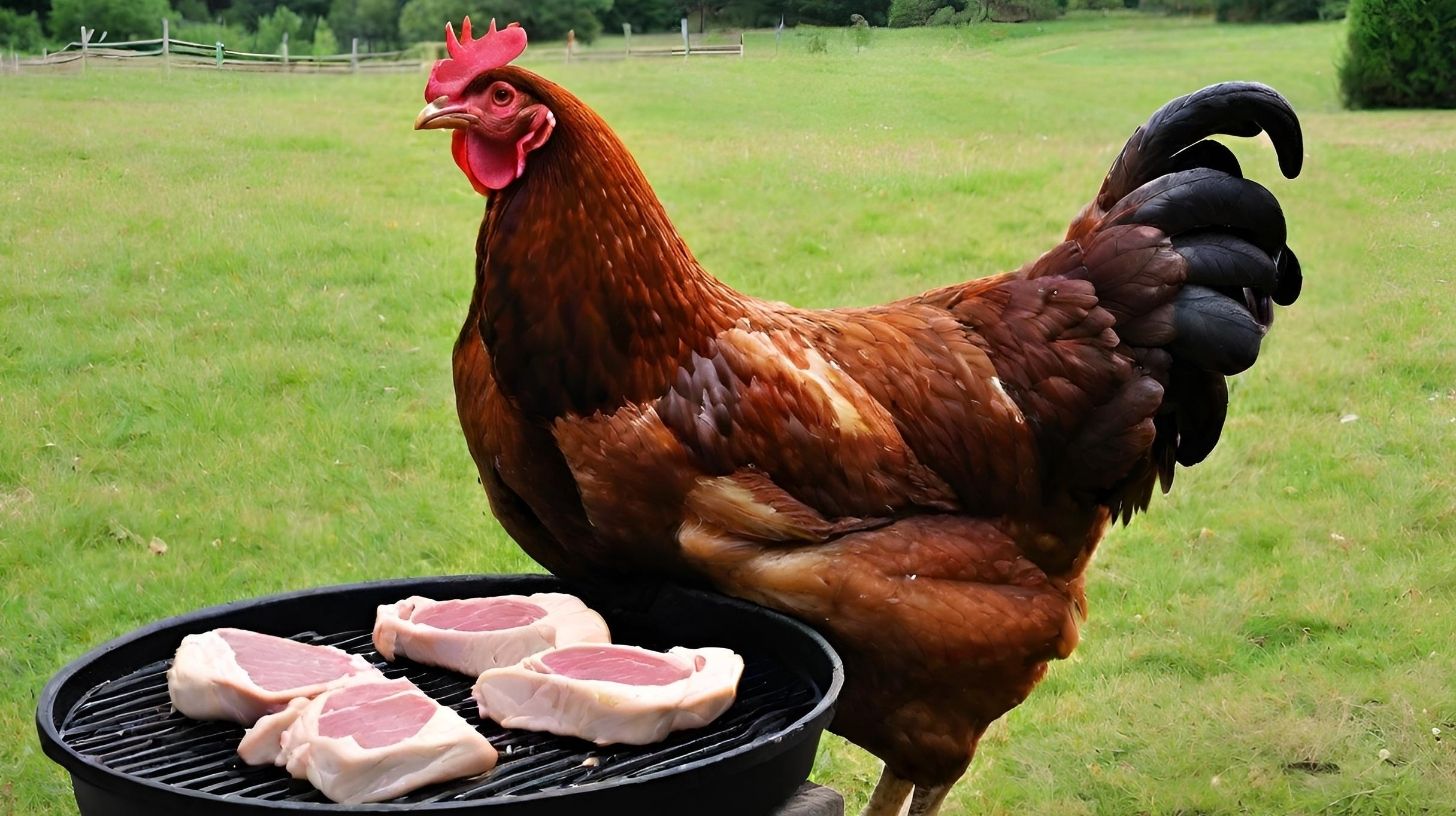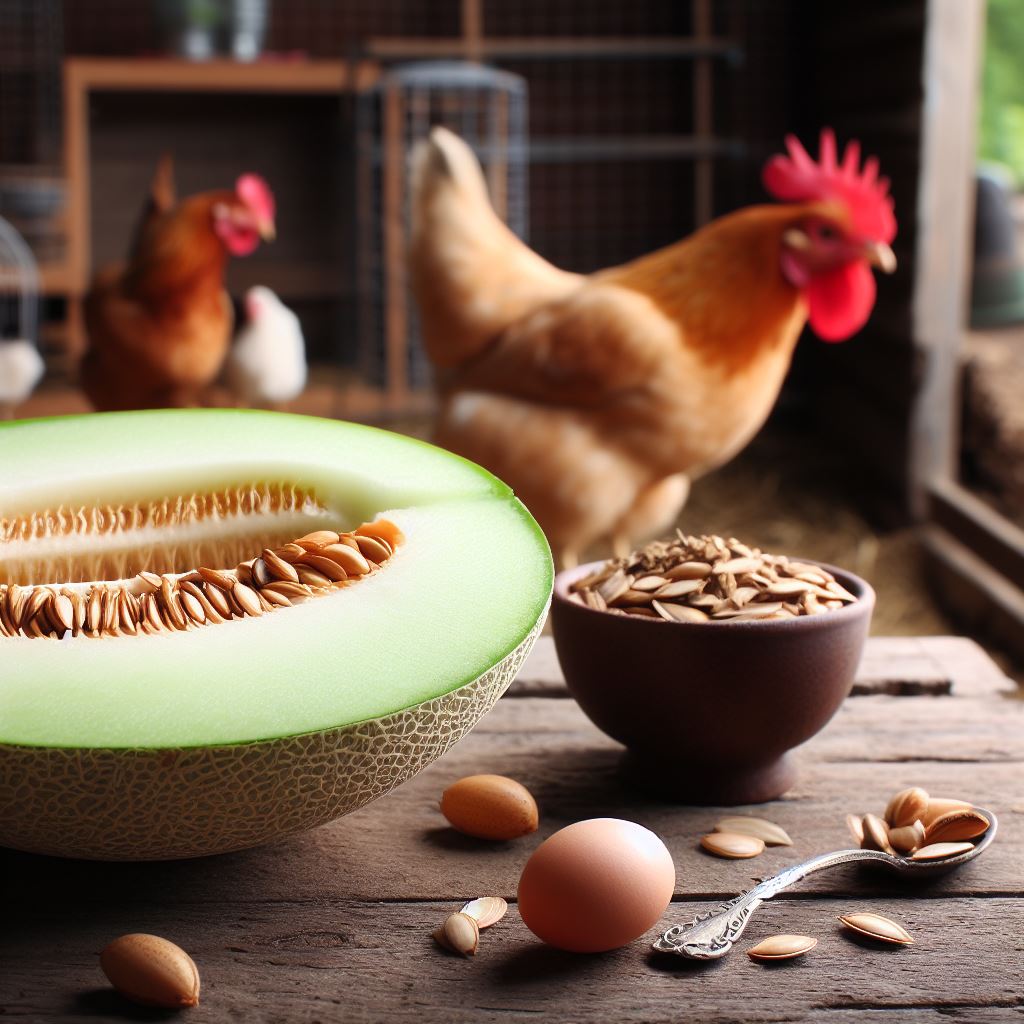Can Chickens Eat Steak? The Definitive Guide

Table of content:
Chickens can eat steak in moderation as an occasional treat. Steak provides protein and nutrients that chickens need, but too much red meat may cause digestive upsets. Use caution when feeding steak to backyard chickens.
Key Takeaways:
- Steak contains beneficial protein and nutrients for chickens but has potential downsides
- Only feed chickens cooked, unseasoned beef in small amounts
- Too much red meat can impact chickens’ digestive health
- Steak bones pose a choking hazard and should always be removed
- Introduce new meats slowly and watch for signs of digestive distress
The question of whether chickens can eat steak intrigues many backyard chicken keepers. Chickens are omnivores able to consume a wide variety of foods, including meat. Steak contains beneficial protein and nutrients that chickens need in their diet. However, there are also some potential downsides to feeding steak to chickens that need careful consideration.
With proper precautions, chickens can occasionally eat steak as a supplemental treat. But this tasty human food should never become a diet staple for chickens. Learning what steak does and doesn’t provide chickens gives you the knowledge to make the best feeding decisions.
 Nutritional Value of Steak for Chickens
Nutritional Value of Steak for Chickens
Steak is essentially a cut of beef taken from cattle. This red meat contains substantial protein, the building block chickens need for growth, egg production, and general health. Compared to chicken feed, steak also provides more concentrated amounts of certain nutrients:
- Iron: Important for blood health and oxygen circulation
- Zinc: Supports immune function and feather growth
- Vitamin B12: Essential for energy metabolism and brain function
On average, a 100 gram serving of steak supplies around 25 grams of protein. That’s more than half the daily protein needs of a medium-sized laying hen.
Steak also consists of varying amounts of fat depending on the cut. This can provide concentrated calories for energy. However, chickens don’t require very high fat levels in their diet.
| Nutrient | Amount in 100g Steak | Chicken Needs |
|---|---|---|
| Protein | 25g | 16-18g |
| Iron | 2.7mg | 80mg |
| Zinc | 4.1mg | 40mg |
| Vitamin B12 | 2.1μg | 0.02mg |
In terms of vitamins and minerals, steak provides extremely high amounts of Vitamin B12 in particular. This essential nutrient is naturally found in animal products.
Potential Benefits of Feeding Steak to Chickens
The rich assortment of protein, iron, zinc, B vitamins and other nutrients make steak highly appealing for chickens. Here are some of the potential benefits of adding small amounts of steak to a backyard flock’s diet:
- Increased protein intake – Steak can help raise protein levels for improved egg production and growth in young chickens. The quality protein ensures amino acid needs are met.
- Enhanced nutrition – Nutrients like iron, zinc and B vitamins are difficult for chickens to get from plant material alone. Steak offers these in a highly bioavailable form chickens can efficiently absorb.
- Improved feather quality – The zinc in steak supports healthy feathers. Small amounts may help strengthen feathers and reduce breakage.
- Increased dietary variety – Adding different meat sources creates more complete nutrition. Variety also keeps chickens interested in eating their feed.
As an occasional supplemental feed, nutritionally dense steak can provide health-promoting nutrients. Used properly, small servings may benefit backyard chickens.
Potential Downsides of Feeding Steak to Chickens
However, there are also some potential downsides to feeding steak that need careful consideration:
- Digestive issues – Too much steak can lead to crop impactions and diarrhea. The rich fat and protein takes time to breakdown.
- Nutritional imbalances – Overfeeding steak instead of balanced feed leads to deficits in calcium, carbohydrates, and other nutrients.
- Foodborne illness – Raw or undercooked steak may contain harmful bacteria like Salmonella, E. coli, or Campylobacter.
- Internal damage – Bones pose a risk of internal cuts and obstructions. The tissues of ruminants may also be harder for chickens to digest.
- Reduced feed intake – Chickens filled up on tasty meat treats may eat less of their regular feed and balanced diet.
While small amounts have benefits, too much steak poses health hazards ranging from simple nutritional imbalances to life-threatening illness. Following proper feeding guidelines reduces these risks.
 Feeding Guidelines for Giving Steak to Chickens
Feeding Guidelines for Giving Steak to Chickens
To safely feed steak to chickens, follow these best practice feeding guidelines:
- Only feed chickens cooked, thoroughly-cooked steak. Raw steak may contain dangerous pathogens. Use an instant-read thermometer to confirm steak reaches 165°F internally before feeding.
- Remove all bones before feeding to prevent choking hazards or internal obstructions. Cut steak into bite-sized pieces to reduce risk.
- Select completely unseasoned, plain steak. Avoid steak with salt, marinades, sauces, and other flavorings.
- Feed chickens steak no more than once per week, and only in limited quantities about 1-2 ounces per bird.
- Introduce new meats slowly. Watch for decreased appetite, changes in droppings, or other signs of digestive upset.
- Make sure chickens have unlimited access to their regular feed and calcium-rich sources like oyster shell.
Following proper procedures reduces, but doesn’t completely eliminate, the risks associated with feeding steak to chickens. If in doubt, consult an avian veterinarian for advice.
Signs of Illness in Chickens From Eating Steak
Monitor backyard chickens closely when introducing new meat sources like steak. Watch for these potential signs of illness:
- Depressed or withdrawn behavior
- Decreased feed and water intake
- Weight loss
- Loose droppings or diarrhea
- Poor feather quality
- Pale combs and wattles
- Sudden death
Severe diarrhea, vomiting, or obvious distress requires immediate veterinary assistance. However, also watch for subtle changes in health or behavior that may indicate steak or other new foods caused an issue.
If chickens show any concerning symptoms, discontinue steak and return to the normal diet. Allow the digestive system to rest and recover.
Frequently Asked Questions About Feeding Steak to Chickens
Many backyard chicken keepers have additional questions about the safety and nutrition of feeding steak. Here are some frequently asked questions with answers:
Can I feed chickens raw steak?
No. Raw steak carries a high risk of transmitting pathogenic bacteria like Salmonella and E. coli. Always cook steak thoroughly to 165°F internal temperature before feeding to chickens.
What cuts of steak can chickens eat?
Chickens can eat any cut of beef steak, but leaner cuts are better. Fattier cuts like ribeye may cause digestive upset. Remove all visible fat, which chickens don’t efficiently digest.
How much steak should chickens eat?
Feed chickens just 1-2 ounces of cooked, unseasoned steak meat per bird, no more than once weekly. This limit represents about 10% of their daily diet.
What about steak bones and fat?
Never feed chickens bones, which can splinter and cause deadly internal punctures. Also avoid feeding excess fat, which chickens struggle to digest.
Can chickens eat steak every day?
No, chickens should not eat steak on a daily basis. Steak does not provide complete nutrition and excess red meat taxes the digestive system.
Will steak make chickens aggressive?
No, there is no evidence steak alters behavior in chickens. Issues like aggression relate to breed disposition, space limitations, and other factors unrelated to diet.
Conclusion
In conclusion, chickens can safely and beneficially eat steak in strict moderation. Steak offers protein, iron, zinc, vitamin B12 and other nutrients that may promote health.
However, bones and excess fat should always be removed to prevent internal damage. Introduce new meats slowly while monitoring for signs of digestive upset. Limit steak to only occasional, weekly treats to supplement a balanced diet.
With an understanding of the risks and benefits, backyard chicken keepers can make informed decisions about feeding small amounts of steak. Monitor your flock’s health and wellbeing, and discontinue steak at the first sign of adverse effects.
Welcome. I’m Adreena Shanum, the proud owner of this website, and I am incredibly passionate about animals, especially poultry. I founded adreenapets.com as a labor of love, stemming from my desire to share my knowledge and experiences with poultry enthusiasts worldwide.




